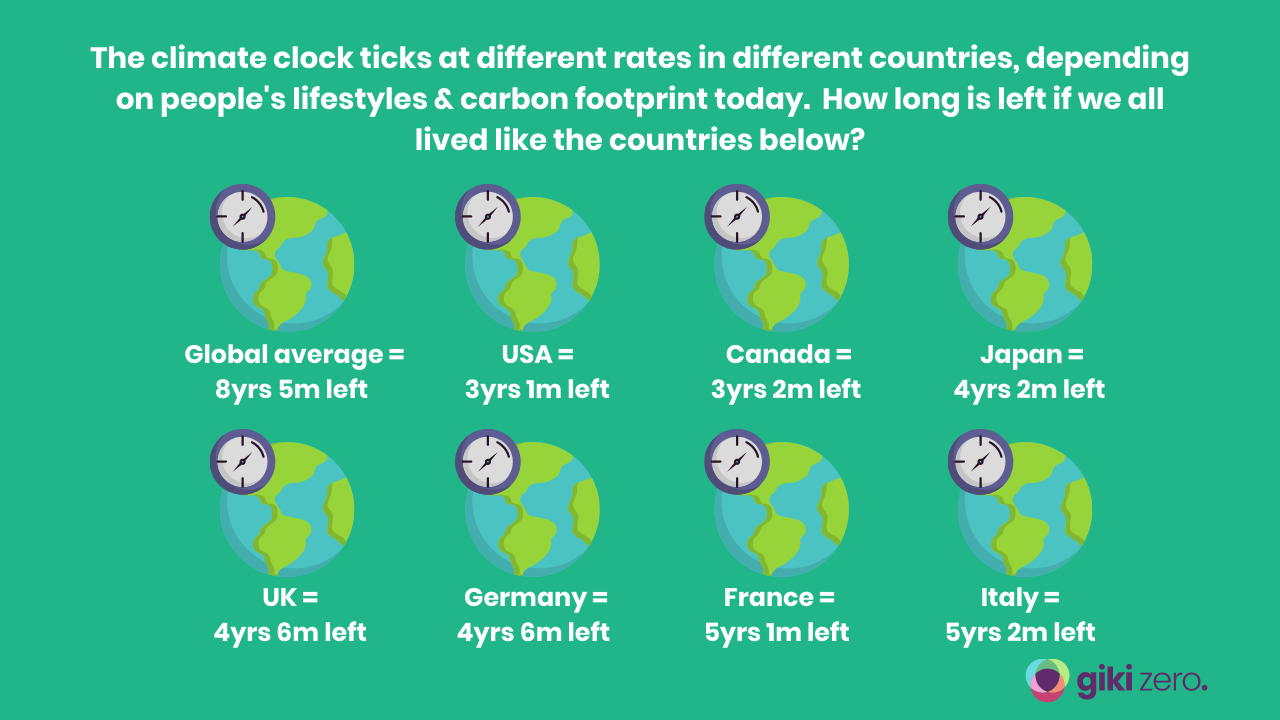
In this decisive decade for climate change, greenhouse gas emissions need to be cut in half globally to ensure a reasonable chance of remaining below 1.5°C of global warming. The magnitude of the task requires intervention at national and international policy levels, business transformation, and changes across society.
However, sometimes against a backdrop of G7 summits, COP meetings, and TFCD reporting the role for individual action and behavior change is overlooked. It will be crucial though because with three-quarters of global greenhouse gas emissions coming from households there is no feasible path to Net Zero that does not include substantial lifestyle changes for individuals.
Jo Hand
The reduction in individual carbon footprint size required over the next decade demonstrates this clearly, and also shows how much further we need to go in high-income countries. The average global personal carbon footprint per annum is 5 tonnes, but this figure is considerably higher in wealthier nations. For example, it’s 7 tonnes in Spain, just over 9 tonnes in the UK and Germany, and over 13 tonnes in Canada and Australia. By 2030 the global average must be below 2.5 tonnes.
The Climate Clock is Ticking – Faster in the G7 Than Elsewhere
In advance of the G7 summit, we conducted research based on the concept of a climate clock to highlight the immediate actions required in wealthier countries. Climate clocks compare current emissions to the remaining 1.5°C carbon budget, as defined by the UN IPCC, and determine how much time is left until the current budget runs out based on current emissions. Country and group climate clocks follow the same approach but assume that everyone in the world lives like the person in that country or group.
What we found is that in G7 countries climate clocks are ticking down faster than previously recognized. If everyone lived like people in the G7 countries, we would only have four years and one month until the climate clock runs out. That’s enough time for just two more Olympics, one US Presidential Election, and one World Cup.
The global climate clock runs for slightly longer at eight years and five months at current levels of carbon emissions. Our analysis shows that G7 countries are using up their carbon budgets at twice the rate of the global average and over 10 times faster than the poorest 50% of the world population, who have a full 56 years and 6 months left until their climate clocks run out.

Helping Employees Engage in Sustainability
The need for immediate, personal action is why Giki Zero has started working with some of the world’s largest companies to help individuals understand and reduce their footprints together. Employees can select their country or region, and in the USA they can access a state-level carbon calculator, to understand both their footprint and their personal climate clock. From there we provide personal steps to help people start making carbon cuts.
In a recent one-month program with a UK-based financial services firm, a group of employees, led by their sustainability leads (who we call Chief Greenies) managed to achieve an incredible 80% participation and 75% engagement. People committed, on average, to cut over 0.6 tonnes of carbon per person which, encouragingly, is in line with the annual savings we need to accumulate in the UK to hit 2.5 tonnes by 2030.
Employee actions like this are important because, for many of the companies we work with, employee personal carbon footprints can be up to 10 times the operational footprint of the firm itself. For example, when staff at professional services firms take our most popular step, “Cut a tonne in ’21,” this can equate to the total scope 2 emissions or even the total scope 3 business travel emissions for the whole company.
As a result, we are seeing significant benefits for participating companies in launching an employee sustainability program, not only in terms of high participation and engagement but also by helping to embed sustainability across the business. Understanding about personal footprints significantly increases sustainability knowledge and helps to show clients that a firm is in the vanguard of action to combat climate change.
Individual Action on the Agenda
While individual action and engagement on climate change have been less of a priority than policy and corporate change, this seems to be changing and is an area that is gathering greater attention on a global scale. For example, recent reports from the IEA, UN, and Committee on Climate Change all stressed the importance of individuals. The simple conclusion from the IEA reads “It is ultimately people who drive demand for energy-related goods and services, and societal norms and personal choices will play a pivotal role in steering the energy system onto a sustainable path.”
The IEA Net Zero by 2050 report cites 3 key areas regarding the energy sector where behavior change is crucial: reducing excessive or wasteful energy use; transport mode switching; and materials efficiency gains.
In research we completed with Dr. Richard Carmichael, we showed these areas, and more, from the perspective of individual action. We found that with a combination of “Replace” steps (for example replacing petrol and diesel vehicles with EVs) and “Reduce” steps (such as turning the thermostat down) it is possible to get close to the 2.5 tonnes we need to reach by 2030. Transformations to the use of heat pumps, electric vehicles, and greener finance are also crucial components of behavior change, and policy incentives will be required to achieve mass adoption. However, there are also many actions, from cutting food waste to reducing excess electricity use, which save people money upfront and are relatively straightforward to implement. There are very few people in high-income countries who don’t have a simple action they can take immediately.
Taking Action Together
Climate change is now firmly on the agenda across most countries, firms, and communities. However, to really encourage behavior change people need to feel as if they are working collectively.
We have found that people are far more motivated and empowered to make changes as part of a larger group, whether that is through their workplace or local community, not only because of a shared purpose but also because people can share their experiences, tips, tricks, and ideas for how to cut carbon. In the end, lifestyle changes are local and personal so the more support we have from those around us the more motivated we are to act.
Jo Hand is an inspirational social entrepreneur and sustainability and carbon footprint specialist on a mission to help people live more sustainably. In 2017 Jo set up Giki, a social enterprise that provides the digital products to help everyone understand and reduce the environmental impacts of their own lifestyles.
About Giki – Giki is recommended by the UN High Level Climate Champions. Its Giki Zero online tool helps people tackle the root causes of their environmental impact by helping them understand, track, and reduce their carbon footprint with personalized steps to plan out their path to net zero. Giki Zero is the most robust, credible, complete, personalized option for individual environmental action. A core part of Giki’s offering is Giki Zero Pro, a full employee engagement tool to help companies engage employees on sustainability, help staff build knowledge and take action together, and provide data to report on impact.